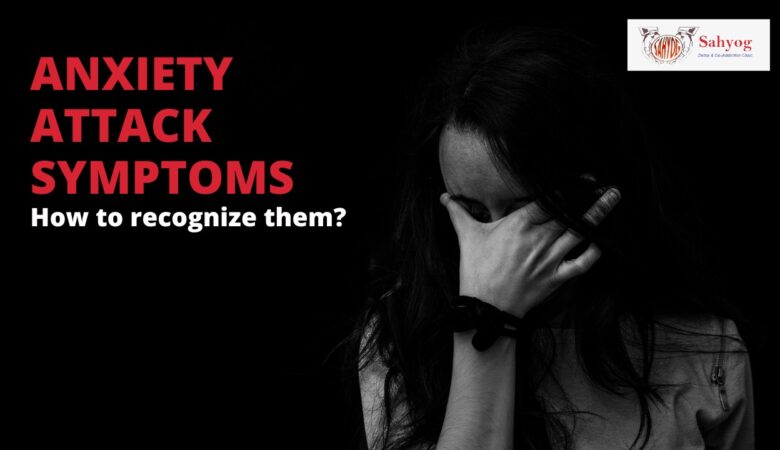Anxiety Attack Symptoms: How to recognize them?
Anxiety is a feeling of apprehension and fear that can interfere with daily life. It can be mild or severe, and can vary in intensity over time. If you’re experiencing any of the symptoms below, it might be time to see a doctor for an anxiety attack assessment. What Causes Anxiety? Anxiety attacks are a severe form of anxiety that can cause intense distress and interfere with daily life. While there is no one cause of anxiety, there are some things that can increase your risk of developing an anxiety disorder. Here are some common causes of anxiety: Genetics: About 50% of people with an anxiety disorder have a family history of the condition. Life events: Stressful life events, like the death of a loved one or a job loss, can trigger anxiety in people who are genetically predisposed to it. Physical health problems: Having chronic pain, having a mental illness like depression, or being overweight can all lead to anxiety. Medications: Certain medications, like antidepressants and beta blockers, can also contribute to anxiety disorders. What are the symptoms of an anxiety attack? There are a few ways to recognize when you’re experiencing an anxiety attack. The most common symptoms are: Tremors or shaking, especially of the hands and feet. A feeling of tightness in the chest, like you can’t breathe. Sweating, especially on the forehead, sides of the face, and under the arms. A racing heart or a feeling of palpitations. Nausea or vomiting. Dizziness or lightheadedness. Fear of losing control or becoming faint. The Types of Anxiety Attack Anxiety is a normal fear or worry that can persist over time. People with anxiety may experience different symptoms at different times. Here are some of the most common symptoms of anxiety: Fear or anticipation of future events, such as a test or presentation Feeling of unreality or being detached from one’s surroundings Persistent anxiety that does not go away even with reassurance from others Rapid heart rate Sweating Trembling Prevention of Anxiety Attacks Anxiety is a debilitating mental disorder that can significantly impact a person’s life. It is characterized by persistent and excessive worry, tension, and fear. Anxiety attacks are sudden episodes of intense anxiety that typically last for 30 minutes or less. There are many potential symptoms of an anxiety attack. Some people experience muscle tension, a racing heart, shortness of breath, dizziness, nausea, or vomiting. If you are experiencing any of these symptoms, it is important to seek help from a doctor or therapist. Here are some steps you can take to prevent anxiety attacks: Monitor your stress levels regularly: Knowing how much stress you’re under on a daily basis can help you identify when you’re starting to feel anxious. Try keeping a journal in which you track your stress levels over the course of the day. This will help you better understand why specific situations or events trigger your anxiety and allow you to make more informed decisions about how to cope with stressors. Refrain from caffeine and alcohol: Both caffeine and alcohol can exacerbate anxiety symptoms. Avoid drinking large amounts of either substance before an anxiety attack in order to minimize its impact. Practice relaxation techniques: Techniques such as yoga, meditation, deep breathing How to treat an anxiety attack Anxiety is a feeling of fear, dread, or unease. It can be described as an apprehension or nervousness before an expected event. Anxiety disorders are a group of conditions that cause excessive anxiety and can significantly affect your life. There are many different types of anxiety disorders, but all share some common symptoms. The most common symptom of anxiety is feeling tense, anxious, and on edge. Other symptoms may include: shaking, sweating, rapid heart rate, dizziness, headaches, trouble sleeping, and diarrhea. While each person experiences anxiety in different ways, there are some general warning signs that you may be experiencing an anxiety attack. If you experience any of the following symptoms for more than a few minutes, you should seek medical help immediately: Extremely tense muscles Shaking or trembling Sweating a lot Panting or difficulty breathing Rapid heart rate Dizziness Nausea or vomiting Trembling or headache If you’re having trouble identifying which symptoms are indicative of an anxiety attack, take the following quiz to help learn more about your own symptoms: Quiz: Which Symptoms Are Indicative Conclusion If you are experiencing symptoms of an anxiety attack, it is important to know how to recognize them so that you can get the help you need. Recognizing the warning signs of an anxiety attack can give you enough time to seek out professional assistance if needed. Remember, there is never a wrong time to reach out for help!



